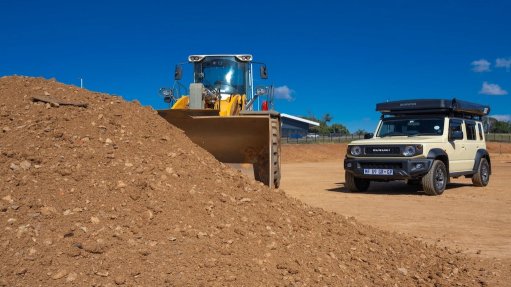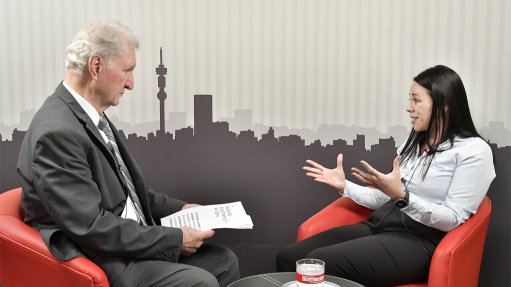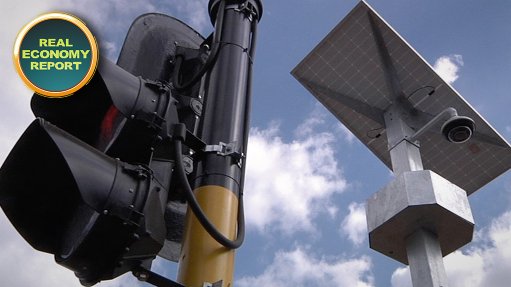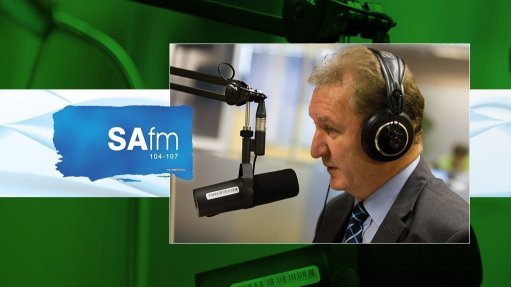Phased reopening of air travel to start with main airports under Covid-19 regulations and directives
Commercial aircraft movement, subject to the coronavirus (Covid-19) level 3 lockdown regulations as of June 1, will start with OR Tambo International Airport, Cape Town International, King Shaka International, and Lanseria International in phase 1 of three phases, Transport Minister Fikile Mbalula said on Saturday.
"Limited domestic air travel for business purposes will be allowed, subject to restrictions on the number of flights per day and authorisation based on the reason for travel," Mbalula said in a statement.
The availability of port health services would also guide flight schedules. The resumption of domestic flights would be rolled out guided by certain considerations, including:
- Port health capacity at the golden triangle airports (OR Tambo International, Cape Town International, and King Shaka International);
- The initial period would also serve as a trial period to stress test the system and measures to determine if they were holding up or not;
- Lanseria Airport should arrange port health capacity, certified by government, before any flight was allowed to take off or land. The transport department would work closely with the management of this privately-owned airport to ensure that all the necessary measures were in place;
- A move to phase 2 would be informed by the current low infection rates in the inland provinces; and
- The department would further engage Industry stakeholders on the contributions necessary for port health capacity in the operations of phases 2 and 3 of the roll-out.
In phase 2, Kruger Mpumalanga International Airport, Polokwane International, and Bram Fischer Airport would re-open, followed in phase 3 by Kimberley Airport, Upington, East London, Umtata, and Port Elizabeth Airport, Mbalula said.
Guidelines to prevent the spread of Covid-19 in civil aviation activities had been developed by the South African Civil Aviation Authority (SACAA) and these would be implemented by the industry, with SACAA playing an oversight role.
"We have evaluated the plans in full and have also considered the non-pharmaceutical interventions as well as mitigation strategies to be implemented by all airlines operating in our domestic markets and are confident that they will assist in the containment of the spread of the virus.
"We have also assessed the measures being rolled out globally in the airline industry and benchmarked against these when an assessment was done by the department of transport on the state of readiness related to the aviation industry," he said.
Only passengers would be allowed inside terminal buildings, they had to wear face masks, and temperature screening would be conducted at entrances before any passenger was allowed entry. The Airports Company South Africa would ensure effective sanitisation before passengers were allowed in, and all airports would have markings on the floor for physical distancing at check-in counters, security checkpoints, and airport lounges.
Airline check-in agents would wear face shields and the protective screens would be installed at counters. Counters would also be frequently sanitised. All airport personnel would wear masks. Passengers were encouraged to use self-check-in to avoid queues. At boarding gates, boarding would be staggered and prioritised in terms of the number of passengers. Sectional boarding would be implemented to avoid unnecessary contact inside the aircraft.
"Inside the cabin, full capacity will be allowed. It must be noted that the risk of Covid-19 infection on board a commercial passenger airliner is lower than in many other confined spaces. All our commercial aircraft are fitted with high efficiency particulate air (HEPA) filters. These are manufactured to the same standard as those used in hospital operating theatres and industrial clean rooms, with the same efficacy of 99.97 percent in removing viruses," Mbalula said.
While the total air supply inside the cabin was essentially sterile and particle free, the biggest risk was if someone entered or remained in that environment while unwell with a viral infection. This risk would be mitigated through the adoption of effective sanitisation and personal hygiene protocols.
Inside the cabin, no catering would be allowed; no magazines on board; and the last row would be reserved for isolation of suspected cases. All aircraft should be disinfected before entering into service and after each flight.
Loading capacity for airport buses would be limited to 70 percent, and buses disinfected after off-loading. Drivers, baggage handlers, and ground handlers should be fully equipped with personal protective equipment (PPE).
On arrival, all passengers would be screened as they entered the terminal building. Suspected cases would be referred to port health, Mbalula said.
Aviation training organisations were allowed to conduct both virtual and in contact training to students that are South African citizens and foreign students already in South Africa, subject to all applicable Covid-19 regulations and directions. Skills tests were allowed, provided that the examiner or Instructor was authorised to conduct a flight test by the SACAA, he said.
Comments
Press Office
Announcements
What's On
Subscribe to improve your user experience...
Option 1 (equivalent of R125 a month):
Receive a weekly copy of Creamer Media's Engineering News & Mining Weekly magazine
(print copy for those in South Africa and e-magazine for those outside of South Africa)
Receive daily email newsletters
Access to full search results
Access archive of magazine back copies
Access to Projects in Progress
Access to ONE Research Report of your choice in PDF format
Option 2 (equivalent of R375 a month):
All benefits from Option 1
PLUS
Access to Creamer Media's Research Channel Africa for ALL Research Reports, in PDF format, on various industrial and mining sectors
including Electricity; Water; Energy Transition; Hydrogen; Roads, Rail and Ports; Coal; Gold; Platinum; Battery Metals; etc.
Already a subscriber?
Forgotten your password?
Receive weekly copy of Creamer Media's Engineering News & Mining Weekly magazine (print copy for those in South Africa and e-magazine for those outside of South Africa)
➕
Recieve daily email newsletters
➕
Access to full search results
➕
Access archive of magazine back copies
➕
Access to Projects in Progress
➕
Access to ONE Research Report of your choice in PDF format
RESEARCH CHANNEL AFRICA
R4500 (equivalent of R375 a month)
SUBSCRIBEAll benefits from Option 1
➕
Access to Creamer Media's Research Channel Africa for ALL Research Reports on various industrial and mining sectors, in PDF format, including on:
Electricity
➕
Water
➕
Energy Transition
➕
Hydrogen
➕
Roads, Rail and Ports
➕
Coal
➕
Gold
➕
Platinum
➕
Battery Metals
➕
etc.
Receive all benefits from Option 1 or Option 2 delivered to numerous people at your company
➕
Multiple User names and Passwords for simultaneous log-ins
➕
Intranet integration access to all in your organisation

















